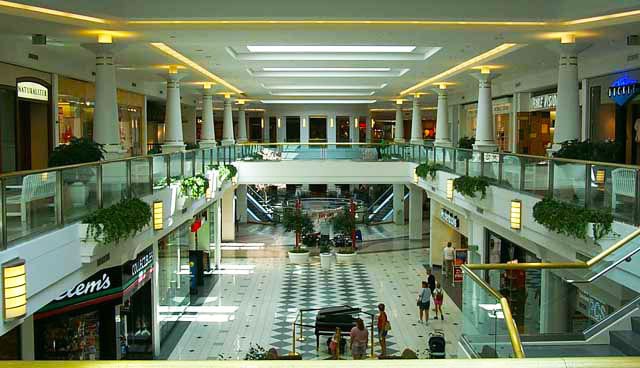Mall Landlords Look to Charter Schools to Fill Vacant Space
For landlords of brick-and-mortar shopping centers, the children are the future.
By Celia Young May 5, 2021 10:46 am
reprints
Time for a field trip to the food court.
The coronavirus pandemic pushed malls — already struggling to survive a “retail apocalypse” — to the breaking point. But the children, specifically schoolchildren, might be the future, as more malls begin hosting public charter schools in need of more space.
Dozens of charter and public schools have leased space in shopping centers in cramped cities or where land is scarce, the Wall Street Journal reported. Landlords are honing in on the 7,500 charter schools in the United States, which tend to spend about 10 percent of their revenue on rent and offer slightly more stability than retailers.
In New York, The Central Queens Academy Charter School signed a 32-year lease for 85,000 square feet in the mixed-use project the Justice Avenue Tower in Elmhurst, less than a mile from its current location. Nationally, Watsonville Prep School in California has looked into taking space at a former Gottschalks department store, while students at Gem Prep: Pocatello in Idaho attend classes at what once was a Sears storefront in Pine Ridge Mall.
Charter schools are publicly-funded, but operate independently of school districts and usually must find and finance their own buildings. While their charters are reviewed by local school boards every three to five years — meaning they tend to sign shorter-term leases than landlords would prefer — charters are usually renewed so offer more stability for mall owners.
And as mall owners struggle to find tenants to fill the growing number of vacant storefronts, landlords will have to adapt. A report from a retail analytics firm called on mall landlords to consider turning former department stores into “micro-fulfillment centers,” Commercial Observer reported. Simon Property Group — the country’s largest mall operator — has been in talks with leasing former JCPenney and Sears stores to Amazon.
The report also asks landlords to consider “out-of-the-box” tenants — any business from gyms to health care providers to coworking operators — that would draw visitors into malls during off-hours, like weekdays and winter months.
Charter schools have done the same, encouraging students to shop or buy food at the mall and increasing foot traffic for some properties, according to WSJ. Landlords have also signed leases with other public schools in need of short-term space — like Vermont’s Downtown Burlington High School, where students have been taking classes at a former Macy’s store since March after toxic chemicals were found at their old building.
The schools have also provided a boon to office landlords around New York City. Brooklyn Prospect Charter School inked a more than 30-year lease for 70,000 square feet in Downtown Brooklyn in March while the Hellenic Classical Charter School signed a 45-year ground lease to build a new 36,000-square-foot campus on Staten Island.



